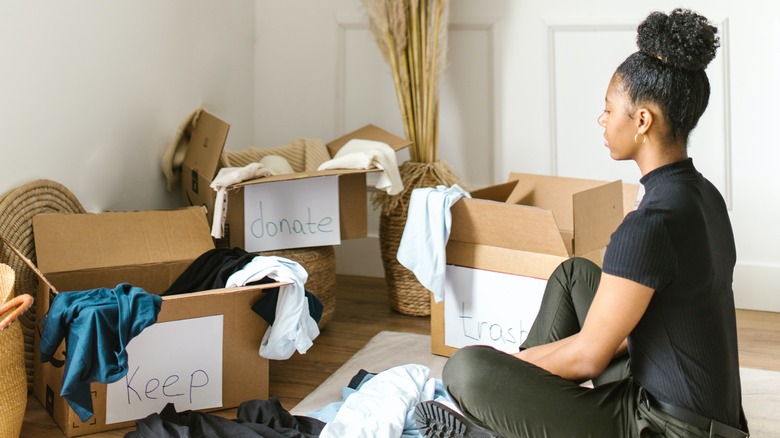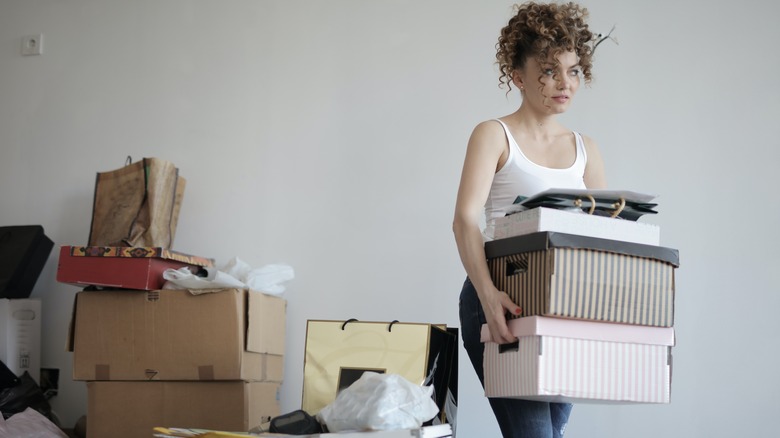What Is 'Declutter Regret' And How To Avoid It
Pursuing a clutter-free lifestyle has given rise to a phenomenon known as "declutter regret." This term refers to the feeling of remorse or longing that emerges after you've parted ways with items during a deep cleaning session. Letting go of these particular tchotchkes, trinkets, or baubles creates a feeling of sadness, remorse, and-or nostalgia for items you had originally considered no longer important. Have you ever gone on a cleaning spree at home or in your workspace and regretted getting rid of something you no longer needed (like that cute pair of pint-sized scissors)? That's declutter regret.
Luckily, there are a few easy ways to avoid and deal with declutter regret. First and foremost, it's essential to take your time and set goals to keep yourself focused. You'll also want to be methodical and mindful, especially with items you might have a sentimental attachment to. Remember that fearing you might make the wrong decision can potentially cause you to hold onto things that you really don't want, which can make the decluttering process much more difficult than it needs to be.
Proper decluttering is a step-by-step process
Decluttering can be stressful and time-consuming, so it's important to go in with a game plan. You'll want to set goals prior to tackling your area, which will help you stay focused and avoid getting sidetracked. When you're choosing your specific spot, keep it small. As in, don't focus on your bedroom. Instead, focus on a drawer or a shelf within that space. Once you've mastered the art of decluttering on a smaller scale, you can slowly move up to larger spaces. Remember to take your time because rushing has no place in the decluttering process. It will also help keep you level-headed throughout your cleaning and prevent you from making impulsive decisions. Another helpful technique is to sort items into categories such as keep, donate, or recycle. This will help keep you in the present all prevent you from accidentally tossing something you might not have wanted to.
When it comes to items you have an emotional connection to, be mindful and give yourself grace. If you're having trouble letting go of things that you know you don't need but feel a certain kinship with, call on the powers of the KonMari Method and sit with the item in question. Ask yourself if it sparks joy, and if the answer is no, then express gratitude and place it in your donation station.
How to curb potential declutter regret
If you're having trouble parting ways with specific items due to the possibility of dealing with decluttering regret, there are a few tricks you can use to help alleviate the stress. First, focus on the future. Instead of dwelling on the past and what you may or could potentially lose, focus on how the benefits of decluttering will positively impact your future self. You can even take it one step further and imagine how your donated items (that have served you so well) will now go on to improve the lives of others. Keeping the end in mind will help you stay motivated and feel positive about the process.
If you're afraid of the possibility of decluttering regret, but you know the items in question should really find a new home, then pick up your smartphone and take a photo before you donate or sell it. This way, you can still look back on the item and retain the memories you associate with it without actually keeping it in your possession. Alongside taking a photo or two is keeping a written record of your donated items in journal form. In a decluttering journal, you would have a photo of your soon-to-be-rehomed items, key memories associated with them, and then space for you to process any emotions that may come up.


